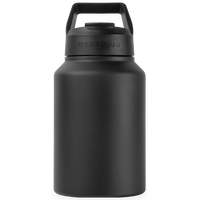
Signs You Are Overtraining
As an athlete, you may have heard of the term ‘overtraining’, but what does it mean and how can you avoid it?
Overtraining or Overtraining Syndrome can occur when an athlete or active person doesn’t properly recover from intense training. This can lead to a decline in performance and a higher risk for injury.

It is not uncommon for athletes to push themselves in training. Whether it’s training for a large goal such as a major competition or as small as a new PR in the gym. Whatever the goal may be, it is tempting to push the limits of the body in order to reach it. Without proper rest and recovery however, the body can actually become overstressed and actually prevent you from reaching your goals.
The symptoms of Overtraining Syndrome can appear not only physically, but mentally as well.
The physical signs of overtraining could include:
- Performance plateaus or declines.
- ‘Heavy’ legs even at low intensity training levels.
- Not feeling recovered for longer periods of time after training.
- Poor sleep
- Feeling unable to rest
- Lack of energy throughout the day
Some mental symptoms of overtraining could include:
- Decreased motivation
- Moodiness
- Lack of joy from things that used to be enjoyable
There are some other signs that could arise include:
- Loss of or missing periods
- Appetite loss
- Falling ill more frequently
- Increased blood pressure

If you notice any of these symptoms, it could be a sign that you are overtraining. The best thing you can do is listen to your body. Resting may feel counterintuitive to reaching your goals, but sometimes it’s the best thing you can do and can actually help you perform better in the long run and remain injury free.
The best way to recover from Overtraining Syndrome is to take rest, focus on your nutrition and mental health, and to slowly return to training at your normal levels once you feel fully recovered.

















